The Lineage of Chaka Khan, Aretha Franklin, and Minnie Riperton
Each guide is based on legendary musicians believed to be part of D’Angelo’s roots. It then branches out into post-‘Brown Sugar’ and ‘Voodoo,’ drawn from that tree. Here’s Chaka, Aretha, and Minnie.
From a narrow definition of soul music, we highlighted R&B that connects back to artists like D’Angelo, hoping it might spark broader interest. Even if you try to explain that “today’s R&B is a direct continuation of old-school soul,” if people don’t see it on the surface, it makes sense they’d ignore it. Those surface-level impressions might tighten the entrance to R&B more than we realize. At the heart of this lineage, this guide covered albums released from 1995 to 2015 that connect to D’Angelo in different ways.
Each guide is built around legendary musicians believed to be part of D’Angelo’s roots (Prince, Marvin Gaye, Curtis Mayfield, Sly Stone, and so on), then branch out into post-D’Angelo R&B releases that draw from that heritage. Inevitably, the selections are a bit biased. They heavily feature the genre often called “new classic soul” or “neo-soul.” So, out of all the artists who’ve been active these past two decades, we’re only showcasing about 60% of them. Still, we take some pride in how major releases by well-known R&B artists line up alongside indie records cherished by devoted fans.
We hope you’ll understand that any artist or album was left out intentionally—and that the artists appearing in each guide don’t necessarily belong in only that guide. We'll be over the moon if this sparks a whole new R&B world for you.
Chaka Khan, who commands funk, soul, and jazz with equal mastery, has exerted an immeasurable influence on the vocal approaches of singers who emerged after the 1980s. Born in 1953 to a Catholic family in Chicago, Illinois, she did not receive the gospel‑music baptism that shaped many R&B singers; instead, her grandmother introduced her to jazz greats such as Billie Holiday. When Chaka pushes into her upper register, the angular timbre—reminiscent of a trumpet—cuts through even the densest band arrangement and lands squarely in the listener’s ear.
Just as the Rufus‑era “Hollywood” (from Ask Rufus) was covered by Erykah Badu and “Sweet Thing” (from Rufus featuring Chaka Khan) was covered by Mary J. Blige, her songs have seeped, almost without exception, into the very bodies of R&B singers.
If Chaka serves as the model for jazz‑leaning vocalization, the model for gospel‑rooted singing is Aretha Franklin (born in 1942 in Tennessee, who sadly passed in 2018). Raised in the church as the daughter of preacher C. L. Franklin and taught the gospel by Clara Ward and James Cleveland, the gospel is both the foundation of Aretha’s singing and a place to which she can always return. Indeed, while making secular soul and pop records, she has periodically released gospel works whenever the spirit moved her. Her voice can draw on its deep roots to deliver a punch or soar gracefully with a beautifully sustained tone. She is also an outstanding songwriter; for example, “Day Dreaming”—covered by Mary J. Blige—was penned by Aretha herself (included on Young, Gifted and Black). Revered not only by clear heirs such as Mary, Alicia Keys, Beyoncé, and Jennifer Hudson but by the entire music world, she is the undisputed Queen of Soul.
Although she passed away long ago, the eternally beloved, charming voice of Minnie Riperton endures. Born in Chicago in 1947 like Chaka, Minnie went solo after her time with Rotary Connection and, in a life of only thirty‑one years, created evergreen numbers such as “Lovin’ You” (Perfect Angel) and “Inside My Love” (Adventures in Paradise). Minnie’s sound will remain an exemplary textbook for singers who yearn for that whistle‑like, ultra‑high register.
Sandra St. Victor: Mack Diva Saves the World
In the early 1980s, Sandra St. Victor was working for Roy Ayers’s Ubiquity when Chaka recruited her, leading to her participation on Chaka’s 1986 release Destiny!. She is a singer who openly calls herself Chaka’s disciple. She is well-versed in jazz stylings such as those of Sarah Vaughan and Ella Fitzgerald, and her deep, resonant singing also recalls Roberta Flack and Nina Simone in some ways. She is also a songwriter privileged to have collaborated with Prince. This is her first release after transitioning from the Family Stand to a solo career.
On the introductory funk track “Mack Diva,” which excites you right from the rumbling bass and wah-wah guitar in harmony, and on “MPHI,” which almost recreates the atmosphere of “Brown Sugar,” she firmly follows the path D’Angelo pioneered—yet never merely for ambience’s sake. It’s the power of her vocals that makes it all stand out. On relatively standard ballads like “Wet” (which is just as wet-sounding as the title implies), she moves sensually from a range as low as any man’s to the high register of Chaka, fully in control. — B.O.
Rating: ★★★★½ (4.5/5)
From razor-edged funk to smooth balladry, she wields a tremendous vocal arsenal reminiscent of Chaka—yet with deeper jazz inflections. An impressive first solo step that channels the D’Angelo wave without being derivative.
Jaguar Wright: Denials Delusions and Decisions
She is Jaguar Wright (before she turned a psychopath), who skillfully switches between a brazen chest voice and a kittenish coo. A “female panther” singer who shook up the open-mic scene (Black Lily) in her hometown of Philadelphia, she released this debut on the Motive label. Produced and performed by The Roots and their collective—including James Poyser, Victor Duplay (sometimes spelled Duplaix), and Scott Storch—it’s an album in the Soulquarians style. She covers her Philly elder Patti LaBelle’s “Love Need And Want You,” and on the smooth mid-tempo track “Stay,” handled by The Roots’ Kamal with Larry Gold’s strings, she luxuriates in the 1970s–’80s Philly International ambiance. On the brain-beat-style minimal funk number “Can’t Wait,” featuring Bilal, she strikes a Prince/Vanity 6 pose. The spoken-word-style mellow tune “Cell Block,” in which she delivers a spine-tingling performance to rival Jill Scott, is now the stuff of legend. Her next album, featuring Raphael Saadiq, is also rich in quality. — P
Rating: ★★★★☆ (4/5)
Effortlessly switching vocal styles, she brings a sultry, edgy presence that meshes with Soulquarians-era Philly. The synergy of The Roots’ production and her bold performances make for a striking debut.
Joy Denalane: Born & Raised
Our favorite German songstress recording “in Philadelphia.” Thanks to a previous single being remixed by James Poyser and Victor Duplaix, Joy Denalane connected with the Philly scene. On this second album, fully sung in English, Anthony Tidd guides local masters like drummer Steve McKie and string arranger Larry Gold to create raw, low-slung grooves. However, the production team is a mixed US-German lineup, including Jake One and her husband Max Herre. She pours every bit of emotion into her vocals on soul music filtered through hip-hop: for instance, “Change,” produced by No I.D. with Lupe Fiasco performing, which quotes an Impressions track, and “Heaven Or Hell,” a remake of Raekwon’s song featuring Raekwon himself. “7 Year Itch,” dedicated to Mary J. Blige, and “Something Stirrin’ Up,” featuring Governor, are Southern soul–style ballads. Her 2011 release, Maureen, also includes involvement from Philly artists. — P
Rating: ★★★½☆ (3.5/5)
A transatlantic fusion of hip-hop soul with Philly players and a fiercely emotional vocal approach. While it occasionally sprawls, the highlights confirm her place in the neo-soul continuum.
Adriana Evans: Adriana Evans
Born in San Francisco to jazz vocalist Mary Stallings, with Pharoah Sanders as her godfather, Adriana Evans helped spark the new-classic-soul boom through this debut album, produced by her then-boyfriend (later husband) Dred Scott. Over hip-hop beats, the tracks are padded with Rhodes, vibraphone, and generous horns, blending a taste of 1970s soul into a mellow sound that goes beyond smooth to outright refreshing. Her crystalline voice—reminiscent of Minnie Riperton or Deniece Williams—rings out with freedom. Leading with “Love Is All Around,” plus “So Good” (which inspired a Sa-Ra remix), “Heaven” (whose strings recall Jamiroquai), and “Laugh @ Your Love,” the album carries a breezy, feel-good vibe. From there on, she has continued in step with Dred, pushing a slight Brazilian flavor while maintaining this album’s overall image. — B.O.
Rating: ★★★★☆ (4/5)
Graceful, airy vocals over jazzy hip-hop–infused soul produce a thoroughly refreshing set. An early gem in the so-called “new classic soul” wave.
Nicole Renee: Nicole Renee
Nicole Renee calls upon masters like Bernie Worrell (keys), Will Lee (bass), Wah-Wah Watson (guitar), Al McKay (guitar), and Steve Jordan (drums). She also works with David Foster and Larry Gold, all the while overseeing the entire project’s production and arrangements—her boldness is astonishing. Including tracks that cleverly reuse famous material by Grover Washington Jr., Rufus, Bobby Womack, and the Isley Brothers, she poses as a female “funkster,” sometimes wielding a distorted, dirty Chaka Khan–like voice, at other times switching to a sweet tone that uses both her natural chest range and a beautiful upper register. Notably, on “Sound of Love,” which rides a ‘70s Philly vibe courtesy of Vincent Montana’s shimmering vibraphone, and on the laid-back slow jam “Ain’t Nothin’ Changed,” co-produced with the Arif Mardin family (and featuring Leon Pendarvis on piano), the songs she wrote in collaboration with Lamont Dozier shine with top-tier craftsmanship. It’s an album that pursues soul by a different approach than neo-soul—capable of captivating older soul heads. — B.O.
Rating: ★★★★½ (4.5/5)
A funk-and soul-packed opus featuring top-session legends and her fearless production chops. She melds rough-edged vocals with sweet highs, creating a powerful, classic-minded gem outside the typical neo-soul sphere.
Brigette McWilliams: Too Much Woman
Her mother, Paulette McWilliams, is a singer who supported Quincy Jones and Luther Vandross and made solo records. She also sang with the group that preceded Rufus, so she presumably handed plenty to her successor, Chaka Khan. So, it’s unsurprising that Brigette McWilliams should also have Chaka-like qualities. This is her second album. Produced again by Steve Harvey, it pairs like a twin with the album by Frank McComb (mentioned in another section and features two tracks from here). Heavyweights like Frank himself, Billy Preston, Bobby Watson, and Wayne Linsey, among others, deliver vibrant performances ranging from Rufus-grade, high-energy funk to a mid-tempo groove called “This Morning Again,” which appears to be based on “Hollywood.” Bridget’s voice, a bit more demure than Chaka’s, nonetheless extends with power and gentleness. Her Brazilian-influenced third album is also irresistible. — P
Rating: ★★★★☆ (4/5)
She continues the Chaka-tinged legacy with soulful flair, supported by top-tier session players. The second album brims with vibrant funk and refined vocals—an excellent follow-up that rewards close listening.
Mica Paris: Black Angel
Chaka strongly influences Mica Paris. On the other hand, her true roots lie in the gospel she cultivated from a young age at her grandparents’ church. Perhaps that’s why, for example, on this album’s Japan-edition bonus track, “Ain’t No Way,” she occasionally recalls Aretha’s original vocal style. If Chaka’s voice shoots out with a bang, Mica’s is rounder and smokier, vibrato reminiscent of Aretha’s. Five years after her US label debut, she was starting fresh, having taken a liking to D’Angelo and Omar. Though neither appears, she enlists Raphael Saadiq on bass, covers Sly’s “Stay,” and includes a groovy funk track called “Carefree,” built on a Miami-soul number by Little Beaver, along with “Is It Good Enough?” which resembles the Staple Singers’ “If You’re Ready.” She ties back to old-school soul/funk in these ways, aligning her with artists like D’Angelo. — B.O.
Rating: ★★★★☆ (4/5)
A warm, gospel-inflected voice bridging Aretha’s spirit and Chaka’s influence, Mica Paris nods to neo-soul while still channeling classic soul/funk. A satisfying blend of old and new.
Terri Walker: Untitled
Terri Walker’s career began with UK garage appearances such as “Sing A-Long” by Shanks & Bigfoot, which boosted her profile. Teri then brought in British and American producers for this solo debut—flavored with neo-soul touches and contributions by Pino Palladino. Though her subsequent album leaned more mainstream, then her third swung back to neo-soul, she always proves more than capable as a vocalist. Her use of jazzy chords can evoke Chrisette Michele, but she’s perhaps closest to Mica Paris. She seamlessly moves from low register to a high range, and especially in her chest-voice belting, she reveals tremendous power. On the opening track, which loops the intro phrase of Musiq Soulchild’s “Just Friends,” she delivers a startlingly wild shout. Incidentally, Teri also formed a retro-oriented duo called “Lady” with Nicole Wray, releasing an album in that vein. — B.O.
Rating: ★★★½☆ (3.5/5)
Teri is a dynamic singer—versatile and commanding—though the stylistic shifts can feel abrupt. Still, her powerhouse range and hints of jazz harmony make this debut a compelling neo-soul entry.
Carleen Anderson: Soul Providence
The late Amy Winehouse raved about Carleen Anderson’s singing, which possesses an awe-inspiring beauty and intensity. Born in Houston as the daughter of Vicki Anderson (a member of James Brown’s circle) and raised by her minister grandparents on pure gospel, she participated in the Young Disciples in the early 1990s before debuting solo. This album, featuring UK-style uptempo tracks like “Gotta Believe In The Future,” a duet with Paul Weller on “Wanna Be Where You Are” (a Jackson 5 cover), and so on, delivers the soulful flavor fans would anticipate from her involvement with Incognito and the Brand New Heavies. Positioning this singular vocalist is tricky: she’s more distant from Chaka than Mica Paris is, and vocally, she cites Cleo Laine as an influence, featuring a lower range and a style that wrings out her soul. At the end of the gospel-powered “Salvation Is Free,” she unleashes a blistering high note that is simply astonishing. — P
Rating: ★★★★☆ (4/5)
Majestic and intense vocals that straddle gospel, funk, and soul influences, delivered with a low-ish range and sudden, piercing highs. A formidable talent once championed by Amy Winehouse.
N’Dea Davenport: N’Dea Davenport
At the start of the ’90s, while the Brand New Heavies were still largely instrumental and only just debuting, N’Dea joined and significantly boosted their vocal side. Thanks to her, melodic acid-jazz numbers like “Never Stop” and “Dream On Dreamer” were infused with authentic soul, enabling the group’s success in America. You can still catch a whiff of the Heavies in this debut solo effort, but it mainly resonates with the post-D’Angelo vibe. The focus is not on dance-music functionality but rather on showcasing the broad expressiveness of her voice—a proper priority for a vocalist’s album. That voice can shoot straight into the sky in a bright, Chaka Khan–like upper range, slip into something reminiscent of Phyllis Hyman, or conjure Aretha’s no-nonsense soul, sometimes leaning bluesy, sometimes adopting a second-line groove. The slow-funk track “When the Night Falls” is particularly tasty. — B.O.
Rating: ★★★★☆ (4/5)
Strong singing that fuses acid-jazz heritage with post-D’Angelo soul warmth. She calls on multiple vocal influences (Chaka, Phyllis, Aretha) while carving out her own dynamic presence. A fulfilling solo debut.
Kelis: Wanderland
Kelis was born to a father who, in addition to being a teacher, was a jazz saxophonist; as a child, she participated in a gospel choir while studying violin and saxophone. In modern urban R&B, it’s common for the lead singer to freestyle while thick backing vocals handle the main chorus melody—but she largely sticks to the primary melody, perhaps because influences beyond gospel also shaped her. This vocal approach meets the Neptunes’ sort of minimal, futuristic production, resulting in a fresh kind of R&B. Due to contractual issues, the album was never released in the U.S., but it unfolds an ambitious sound world that even encompasses bossa nova and rock. Her singing—she once tackled “My Favorite Things” at 13 in the aggressive Betty Carter style—sometimes recalls Betty or Chaka Khan. There’s also a Nirvana “Smells Like Teen Spirit” cover. — P
Rating: ★★★½☆ (3.5/5)
A forward-thinking R&B record melding minimal, futuristic beats with a broad musical palette. Her vocal style—rooted in gospel yet open to jazz, rock, and bossa—delivers a unique, adventurous listen.
Sy Smith: Conflict
Sy Smith calls her music “cyber-soul” or “psycho-soul,” employing a Minnie Riperton–influenced upper range to sing R&B that is both organic and futuristic. She once fronted the Brand New Heavies; more recently, she has collaborated extensively with the Foreign Exchange. During her time at Howard University, she honed her craft in a go-go band, and thus, she possesses a distinctive rhythmic sense. Previously, she worked with James Poyser and Ali Shaheed Muhammad, among others. On this album, she gathers Yamy Rainge from Washington, D.C., and Ty Macklin from Dallas as main collaborators; also joining in are D.C.-based talents Wes Felton, Bilal, and Salaam, driving straight down the neo-soul path. “Ain’t Nothing Like A Jones Baby” is a bassy, Soulquarians-like groover, and her cover of Minnie’s “Baby This Love I Have” is a fitting tribute. Her 2012 release in partnership with Mark de Clive-Lowe was also well-received. — P
Rating: ★★★★☆ (4/5)
A futuristic yet earthy brand of neo-soul, propelled by her Minnie-inspired vocals and go-go-informed funkiness. The collaborative spirit results in a lively, deeply musical affair.
Tweet: It’s Me Again
Though she was born in Rochester, New York, Tweet picked up a Southern accent from her parents; thus, her mentor Missy Elliott dubbed her debut album and nickname after a “Southern Hummingbird.” She is often compared to Minnie Riperton for the delicate allure of her high register. Surprisingly, Tweet says she’s strongly influenced by gospel—most likely referencing acts like The Clark Sisters. Imagine Karen Clark singing without pushing her voice, and you approximate Tweet. The production team, mainly from Missy’s circle, crafts organic-sounding tracks to showcase her beautiful voice. Whether on “I’m Done,” with its finger-snap groove and quietly layered electric piano and guitar, or on “Cab Ride,” which uses a Bob James sample, her vocals melt seamlessly into the music. A tranquil soulfulness. — B.O.
Rating: ★★★★☆ (4/5)
Subtle, understated, and delicately high-pitched, her vocals exude a Minnie-like charm, all framed by earthy R&B production. A quietly compelling sophomore record that stands out in the mid-2000s soul.
Trina Broussard: Inside My Love
From the moment we heard Trina Broussard sing Minnie Riperton’s “Inside My Love” (included here) on the Love Jones soundtrack, some of us were longing for an album. So, I was deeply disappointed when her debut—slated for release by So So Def in 1999—was shelved. Eventually, five years later, she released Same Girl on Motown, which was also quite good. But here we focus on the “lost” debut, reissued by a UK label. It’s brimming with well-crafted, melodic pop-soul, like “Losing My Mind” (co-written with Rahsaan Patterson and others), which bounces a simple yet beautiful melody atop modest acoustic guitar strums (and also appears on the Motown version). Then there’s “Why Do I Feel So Sad,” written by Alicia Keys and Warryn Campbell, with James Poyser on keys, and “Sailing,” co-written and featuring vocals by Trey Lorenz. Her warm brand of soul has a clean, transparent quality and excels at conveying sorrow and wistfulness. — P
Rating: ★★★★☆ (4/5)
A long-lost debut of charming, acoustic-tinged pop-soul that elegantly showcases her gentle yet expressive vocals. Worth the wait and heartbreak of its initial shelving.
Janet Jackson: The Velvet Rope
The endearing image of “the youngest Jackson” or “America’s little sister” barely shows up on this album. There is a positive dance track like “Together Again,” but overall, the content is dark and heavy, touching on themes like S&M and domestic violence. Allegedly, this direction stemmed from her then-husband René Elizondo’s influence. This introspective, noir sensuality also aligns with the new-classic-soul movement. A prime example is “Got ‘Til It’s Gone,” which quotes Joni Mitchell’s “Big Yellow Taxi” and features Q-Tip. Officially produced by Jam & Lewis, its actual beat-making was handled by The Ummah, including J Dilla. Even the surprisingly organic “I Get Lonely” (the single remix features Blackstreet) reflects Janet moving closer to the D’Angelo aesthetic. Her singing remains that Minnie Riperton–like delicacy and sweetness. While she’s drifted personally and professionally in recent years, in 2015, she reunited with Jam & Lewis to embark on a new phase, which turned into Unbreakable. — B.O.
Rating: ★★★★☆ (4/5)
A surprisingly moody, introspective departure that syncs with late-’90s neo-soul influences. Despite the darkness, Janet’s signature light vocals maintain their allure.
Angel Grant: Album
The initial impression might be “an organic-soul version of Janet Jackson.” This is the first album from Flight Tyme, newly founded by Jam & Lewis under their own production banner, and it’s also the debut of Angel Grant. Her vocals have the delicacy of Minnie Riperton and the sultry shimmer of Sade Adu. Co-producer Big Jim Wright layers gentle B-3 organ and Fender Rhodes, in which she delivers a sweet, vocal performance. Songs like “Hey You” embody a folksy-mellow style reminiscent of a “female Tony Rich,” while others, like the blues-rock-tinged “Anyway,” reflect a post-new-classic-soul, alternative approach. There are also subtle appearances by big names—Morris Day on drums and Stevie Wonder on harmonica. She made a comeback in 2010 with My Journey Back. — P
Rating: ★★★½☆ (3.5/5)
A graceful debut with understated star cameos and a dreamy, organic sound—a lighter, more acoustic twist on the Jam & Lewis aesthetic.
Mary J. Blige: Mary
Mary J. Blige is the queen of hip-hop soul—or should we just call her the queen of R&B by now? While My Life (1994) or The Breakthrough (2005) tend to be regarded as her mainstream masterpieces, from a classic-soul perspective, we want to champion this album, whose cover, featuring her forehead scar, conveys natural authenticity. Slightly prior to this, she recorded “Everyday” (also known in Angie Stone’s version) under the production of D’Angelo and Angie Stone. At the start of this album, the mellow and lovely “All That I Can Say,” produced/written/arranged by Ms. Lauryn Hill, is practically MJB’s version of organic soul. She also reveals a taste for ‘70s-style soul with covers like the Gap Band’s “In My Love” and First Choice’s “Let No Man Put Asunder,” while an original ballad, “The Love I Never Had,” produced by Jam & Lewis with Chris Dave on drums, feels like an old-school classic. Her duets with Aretha Franklin and K-Ci Hailey also feel raw and unfiltered. — B.O.
Rating: ★★★★☆ (4/5)
Mary J. Blige in peak form, blending neo-soul production with vintage ‘70s references and her unmistakable emotive delivery. A quintessential statement of organic R&B.
Estelle: The 18th Day
Estelle is the UK girl who broke into the US market as the first artist signed to John Legend’s Homeschool label, then soared with “American Boy” (2008), featuring Kanye West. Her 2012 album involved Questlove of The Roots, but like Lauryn Hill, she wields both singing and rapping. On this debut album, titled with her birthday “(January) 18,” she already showed extraordinary flair. With an Anglo-American team of up-and-coming producers, it spans rap tracks, dancehall, retro soul, and more. The R&B influence grows stronger from the midpoint onward once we reach the Philadelphia-recorded “Maybe,” produced in part by James Poyser. The mournful “Hey Girl,” which uses Les McCann’s “So Your Love Finally Ran Out For Me” and features John Legend on vocals and keys, plus her cover of the Stylistics’ “I’m Gonna Win,” reveal a sweet soul mindset as well. — P
Rating: ★★★★☆ (4/5)
A vibrant debut that fuses pop, rap, and vintage soul, underscoring her vocal and lyrical versatility. This shows why she drew immediate attention in the UK and the US.
Jazmine Sullivan: Fearless
Jazmine Sullivan was the girl who duetted on Kindred the Family Soul’s “Alright” (she was about 15 or 16 in 2003) and was nicknamed “the young Aretha Franklin” around Philadelphia. She was spotted by Missy Elliott, leading to a major-label debut. Her first album, partly produced by Salaam Remi, includes the reggae-styled “Need U Bad,” which doesn’t actually match her personal taste, plus a variety of sounds from ‘60s Motown vibes to disco. The contrast with the jazzy Jill Scott–style material she recorded in her teens can be jarring, but her powerful, self-assured vocals—rooted in gospel—remain compelling. On the Latin-inflected pop tune “Bust Your Windows,” about smashing a cheating man’s car window, or on the adulterous ballad “In Love With Another Man,” her big-mama personality conjures a Southern soul diva. The fierce “Live a Lie,” powered by live-drum-style beats, is also cool. Subsequent releases are equally strong. — B.O.
Rating: ★★★★½ (4.5/5)
She bursts onto the scene with a formidable gospel-honed voice, deftly tackling diverse styles (reggae, disco, R&B). Raw, unapologetic, and steeped in soulful grit.
Fantasia: Back to Me
After belting out Aretha Franklin’s “Chain Of Fools” on American Idol and capturing the heart of guest judge Clive Davis—securing a record deal—Aretha became an absolute idol for her. She was so offended at not being asked to participate in the Grammys’ Aretha tribute that she boycotted the ceremony despite her own nomination. She loves Aretha that much. Understandably, Fantasia was upset that her name didn’t appear among the three up-and-coming singers Aretha cited as feeling her influence. Fantasia, cousin to K-Ci & JoJo, pours herself into songs with a cute yet husky voice that runs extremely deep. The Chuck Harmony–penned “Bittersweet,” driven by a mournful chord progression—akin to Chuck’s work on Chrisette Michele’s “What You Do”—erupts in the chorus, showing Fantasia’s extraordinary vocal power. She also delivers emotionally rich performances on retro-soul tracks, sampling Marvin Gaye & Tammi Terrell’s classics. — B.O.
Rating: ★★★★☆ (4/5)
A dynamic vocalist passionately channeling Aretha’s influence through a raspy, powerful style. Fantasia’s intense emotional delivery puts her in a league of her own among modern R&B singers.


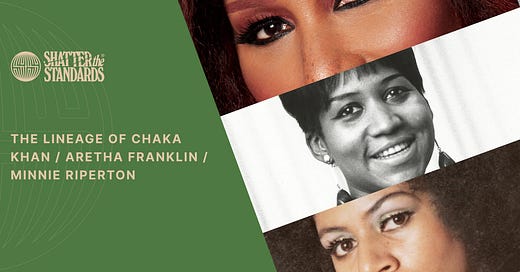

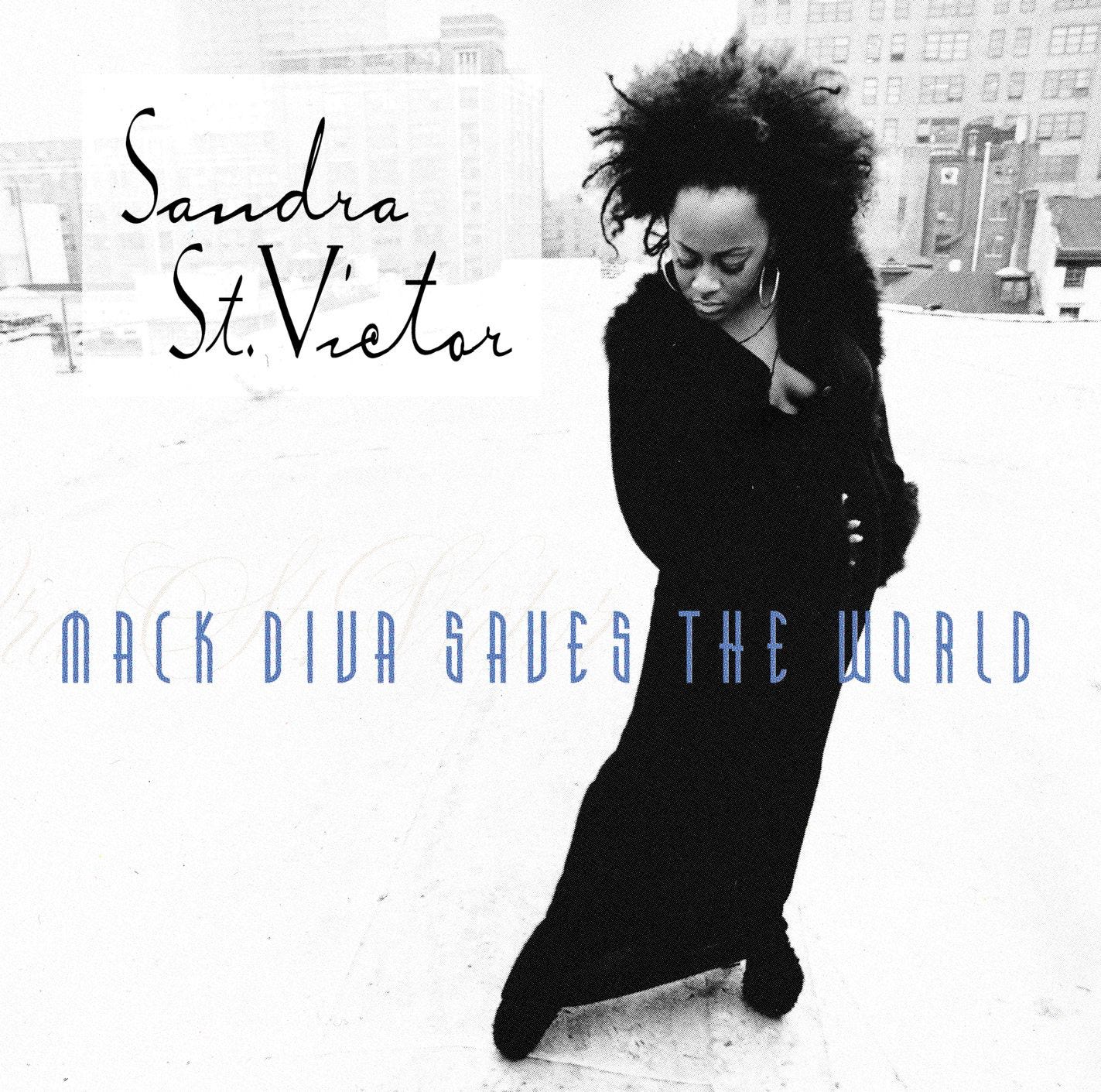
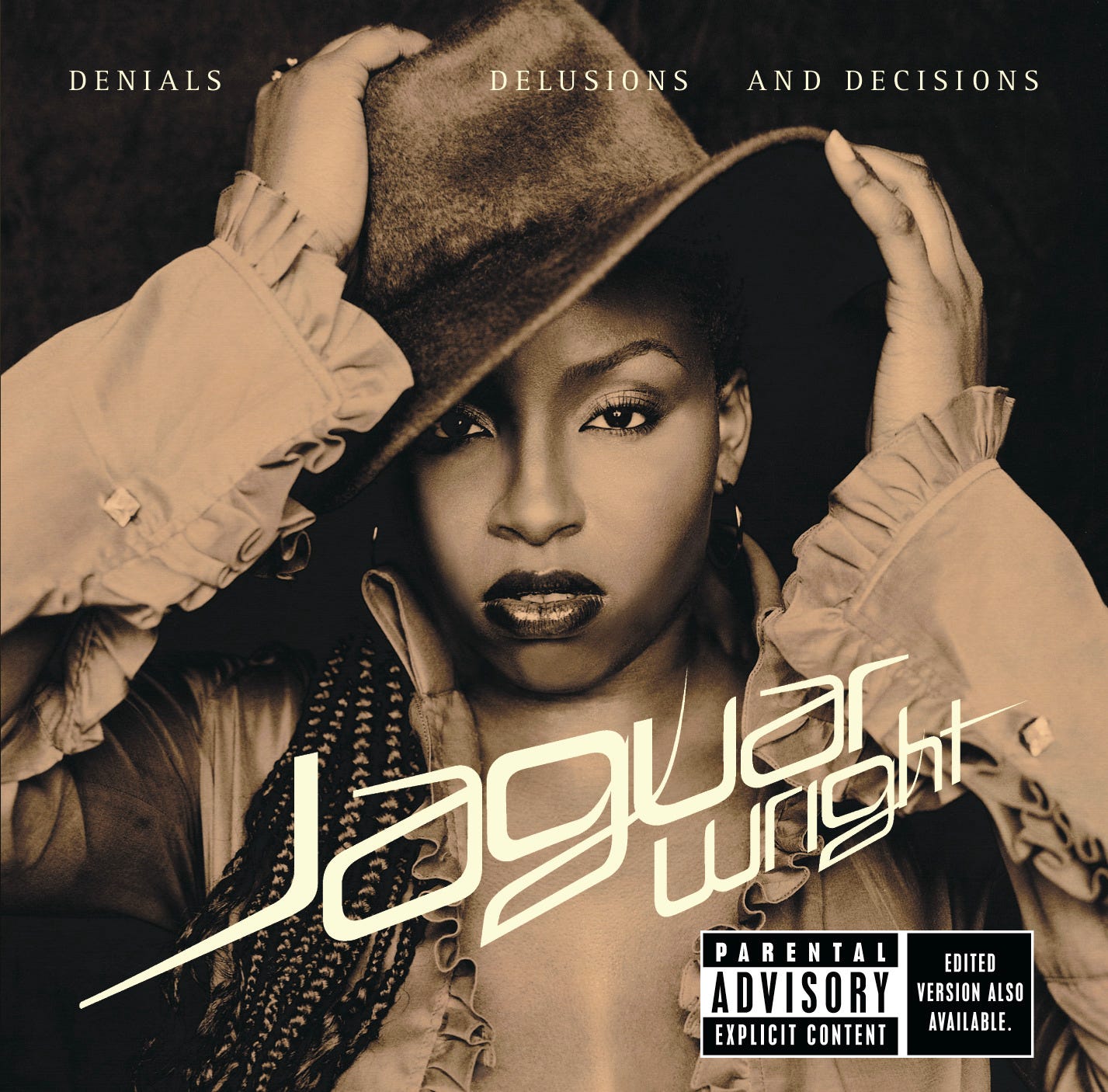
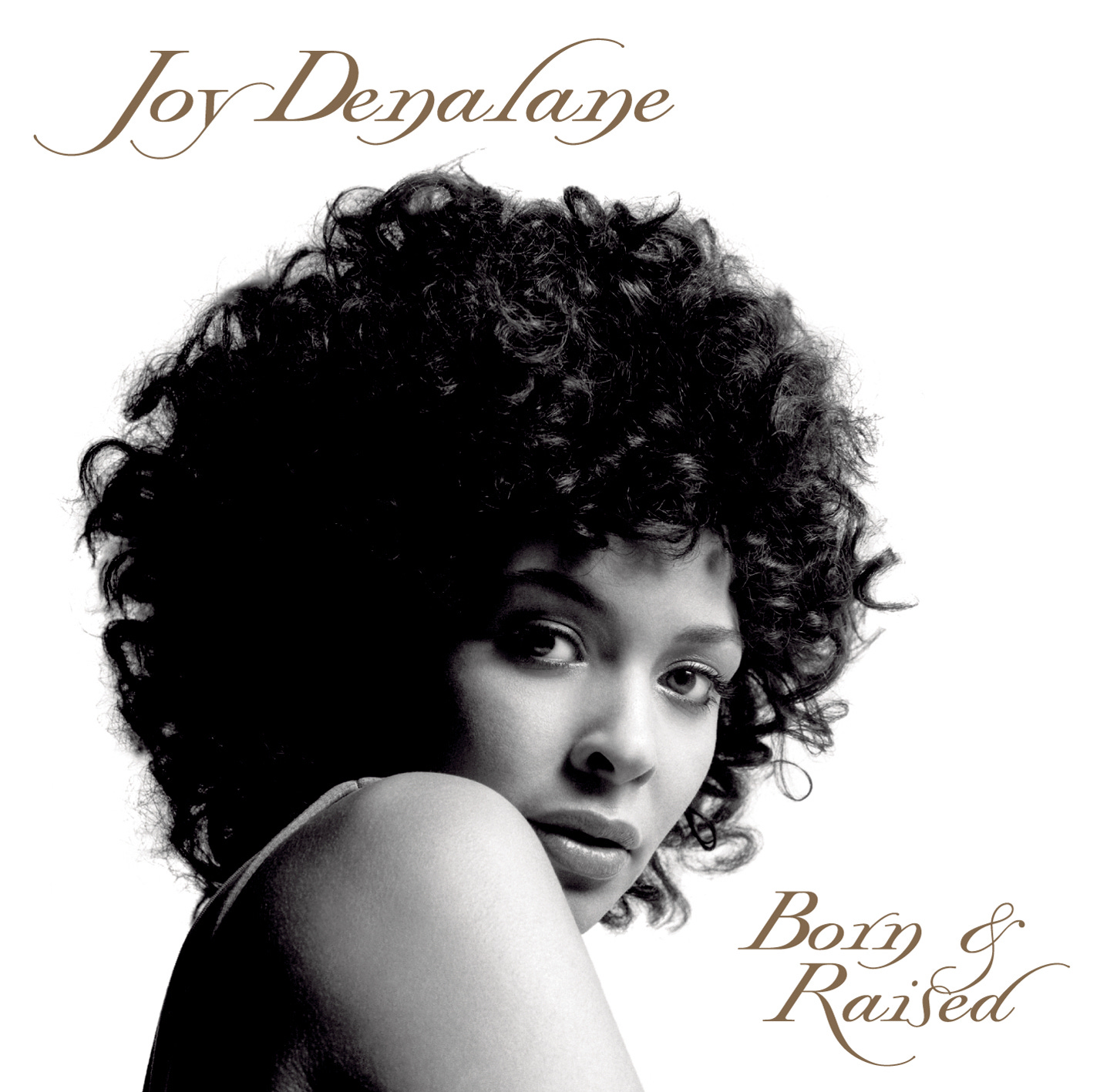
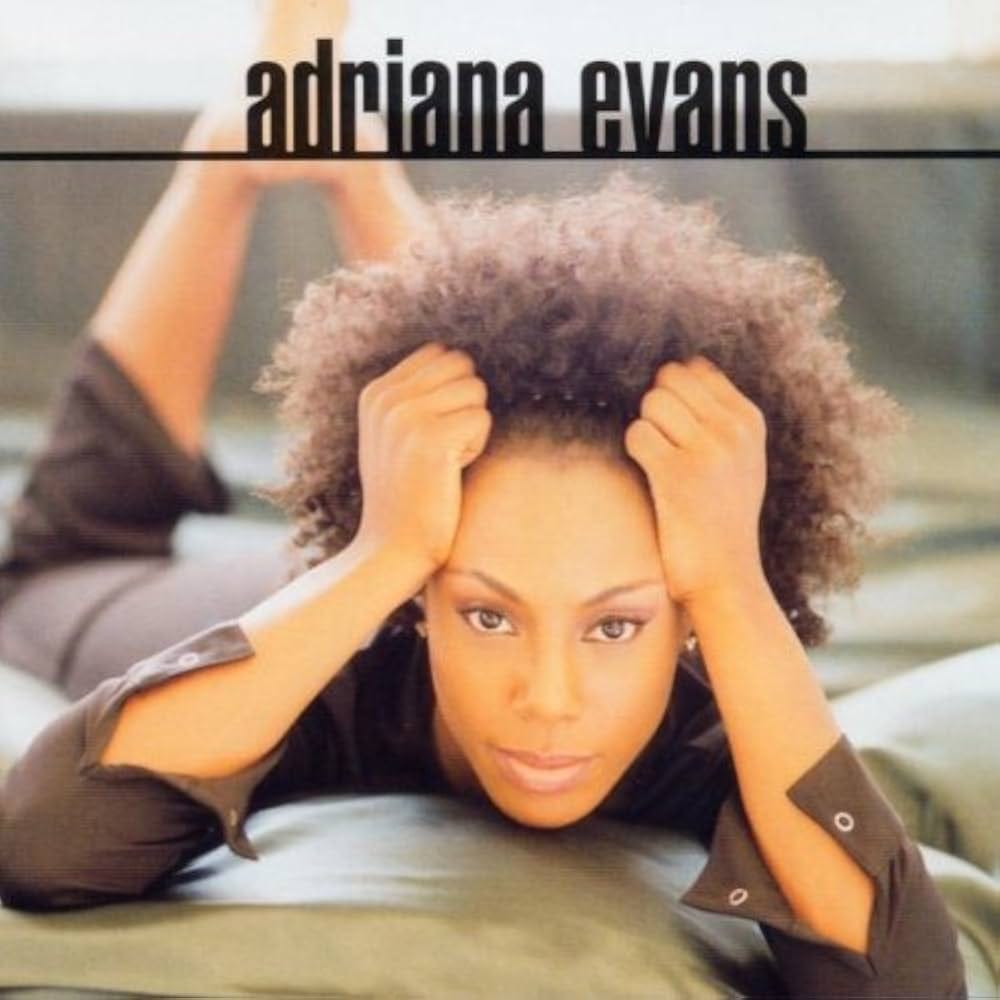
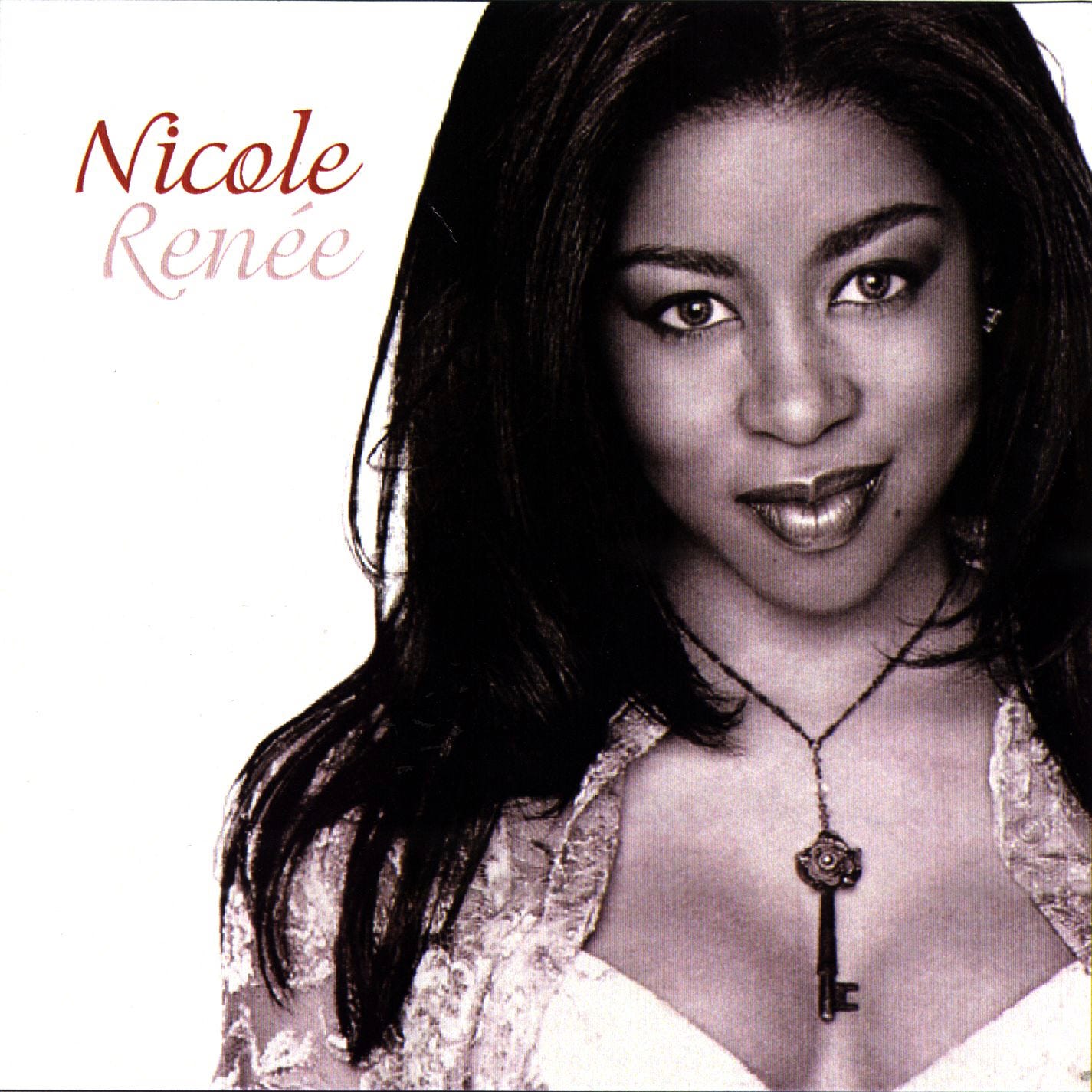
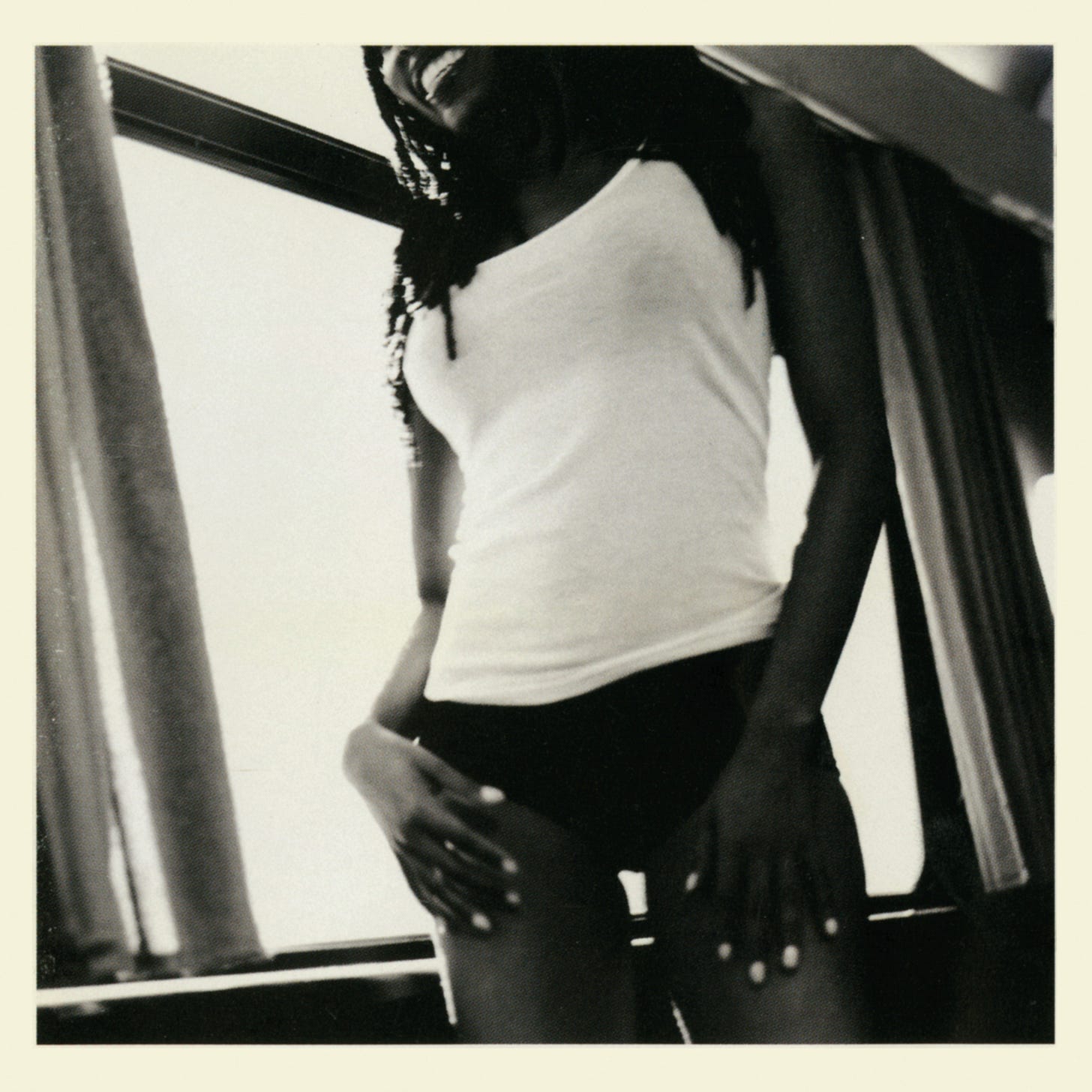
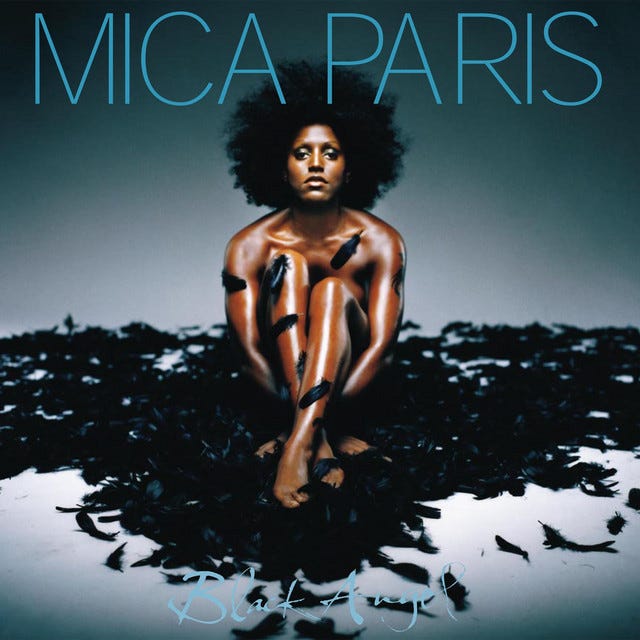
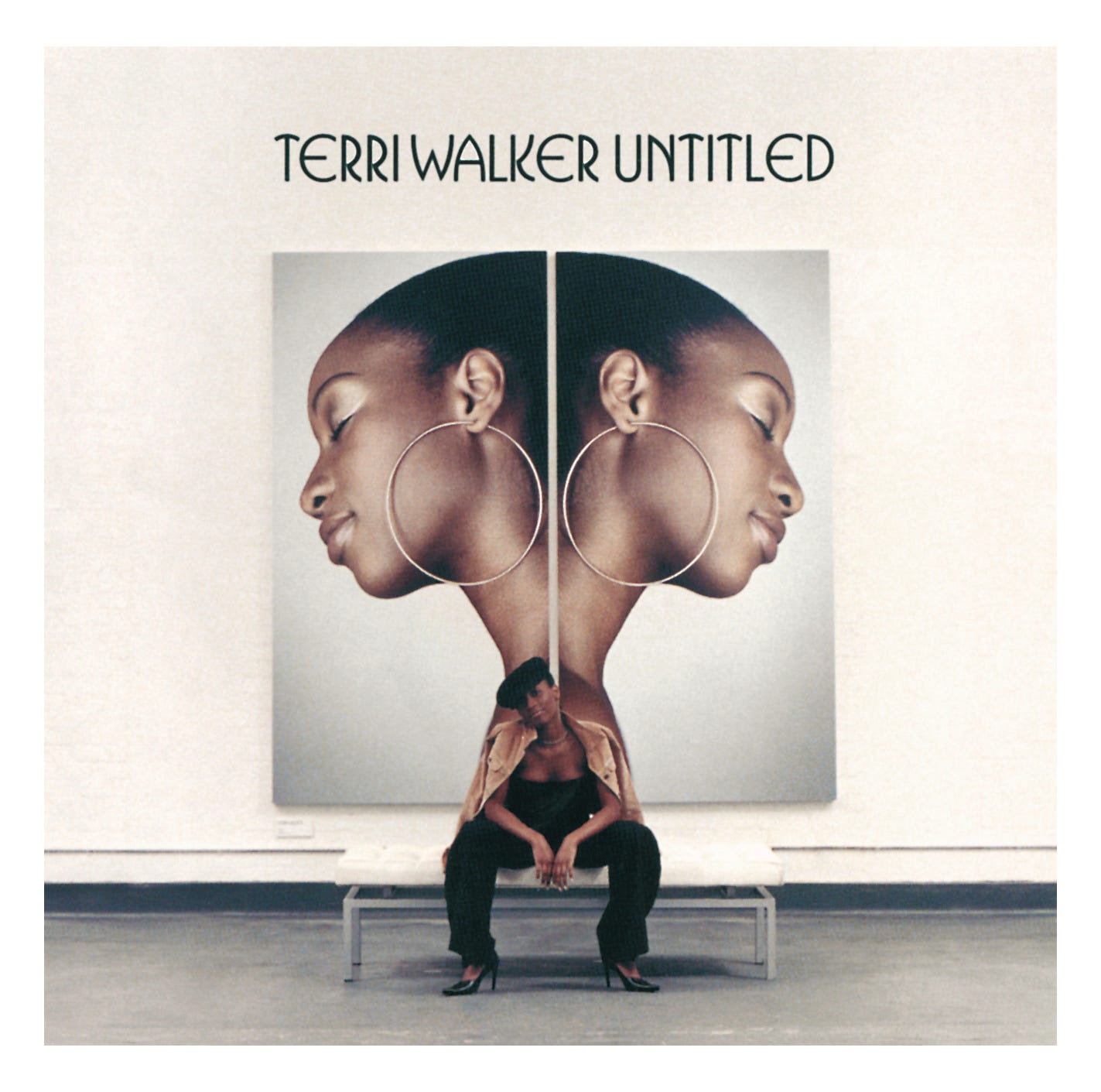
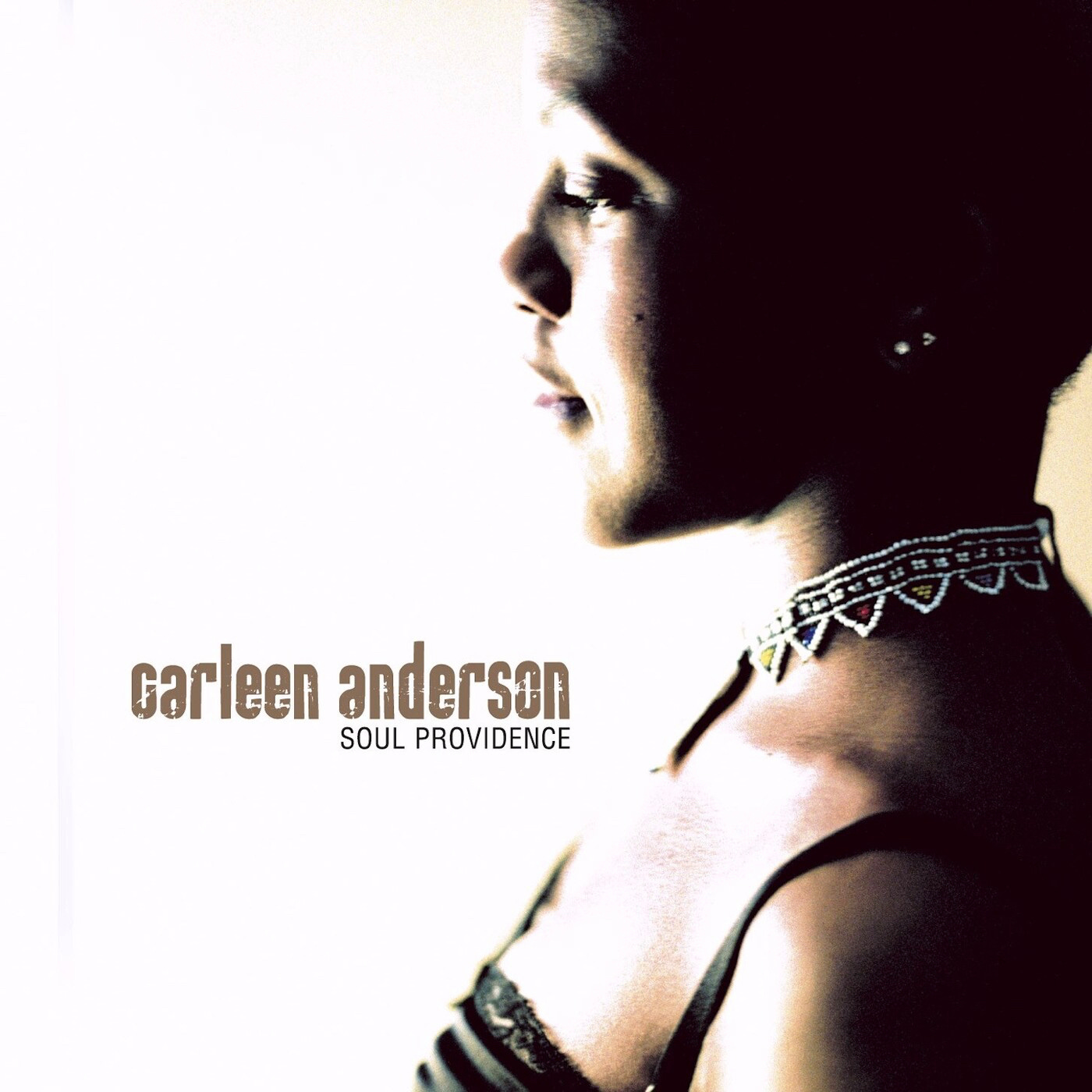
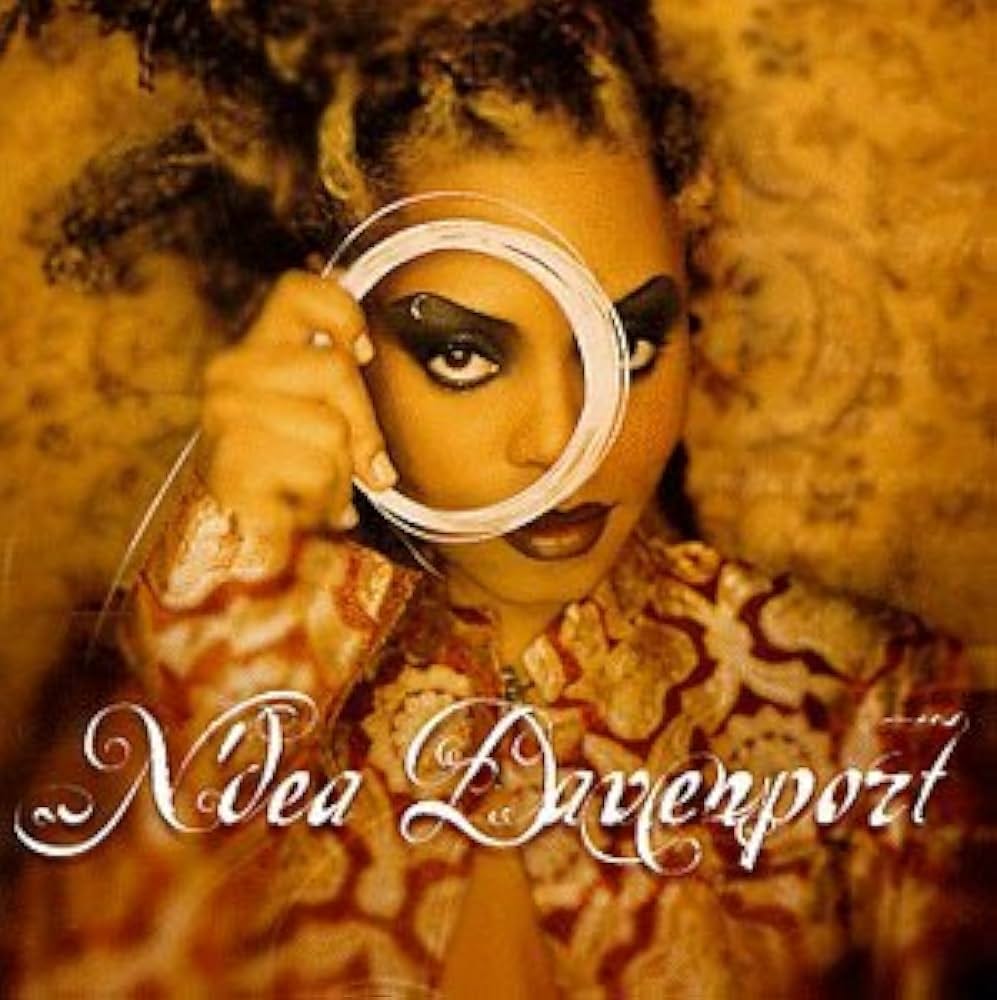
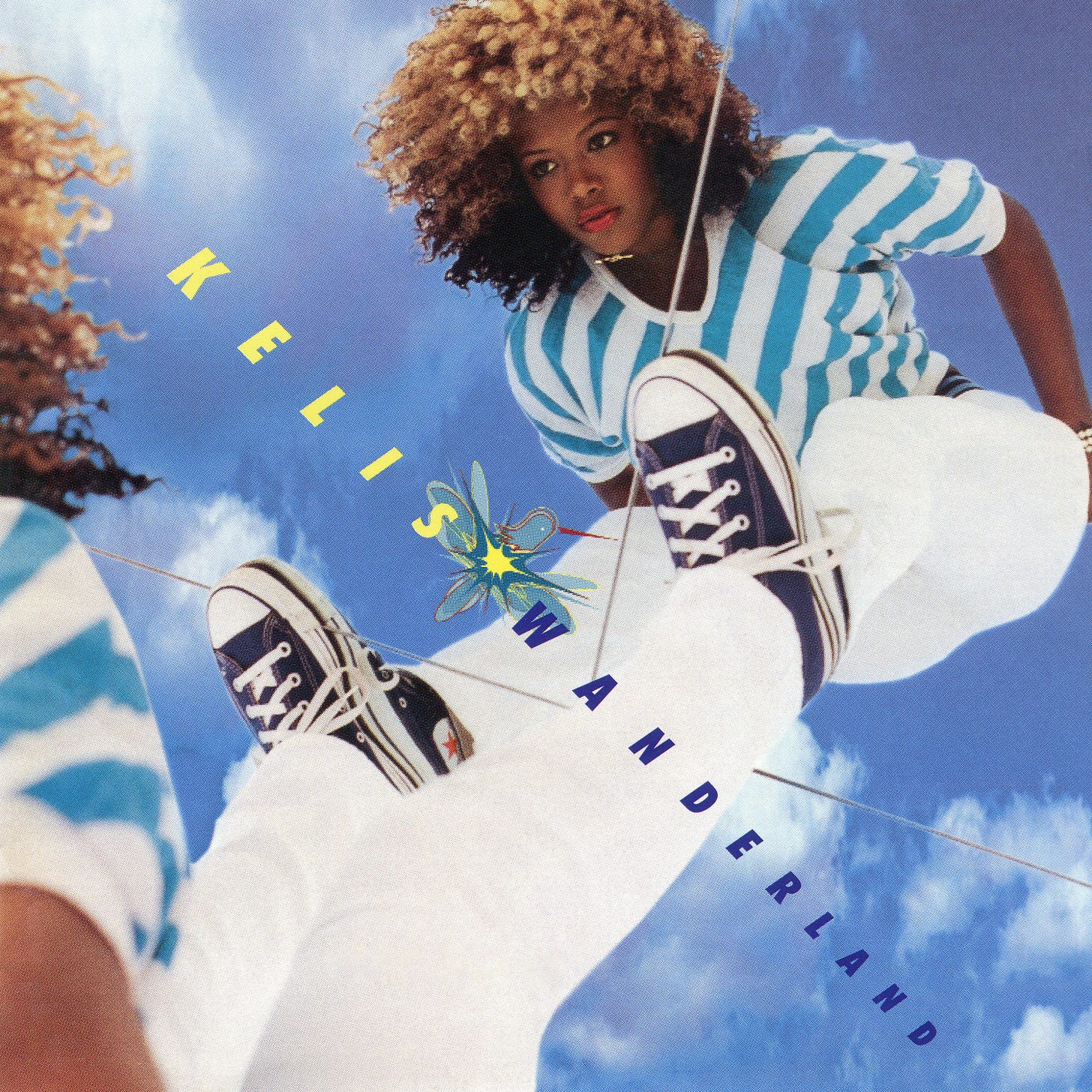
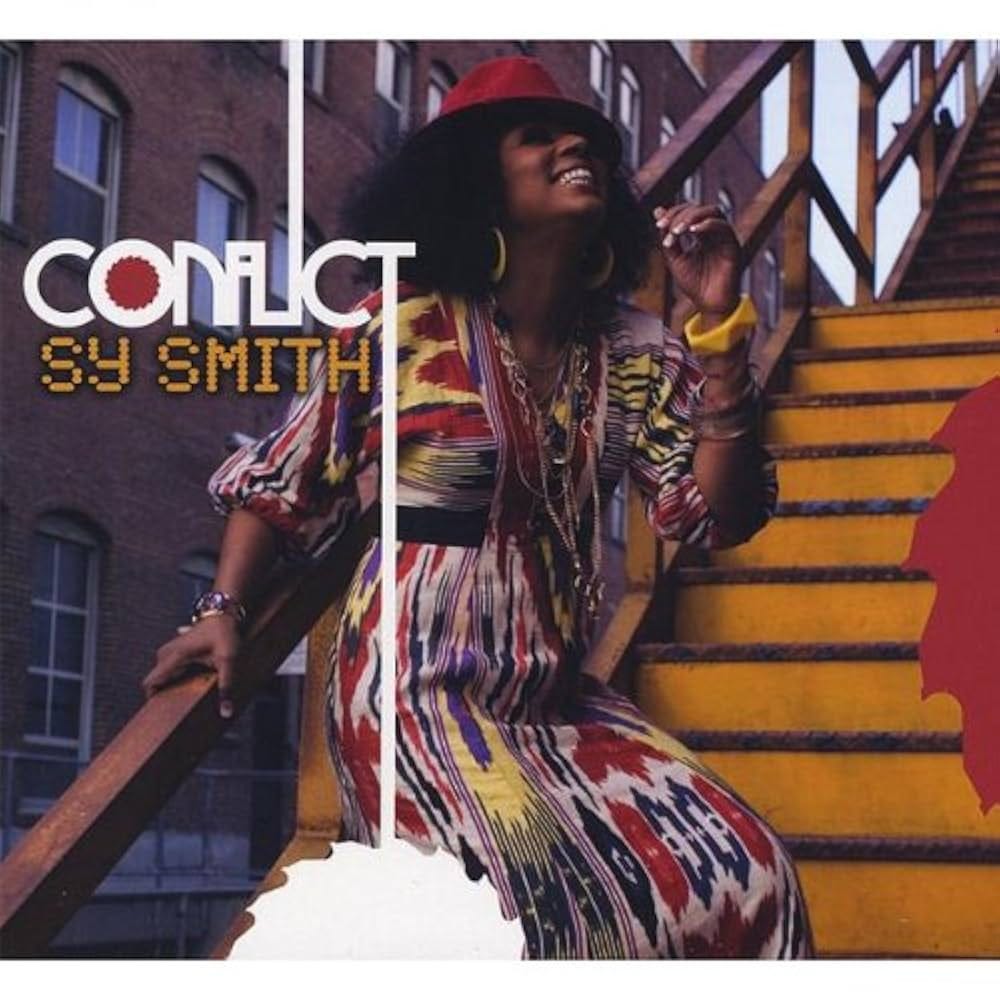
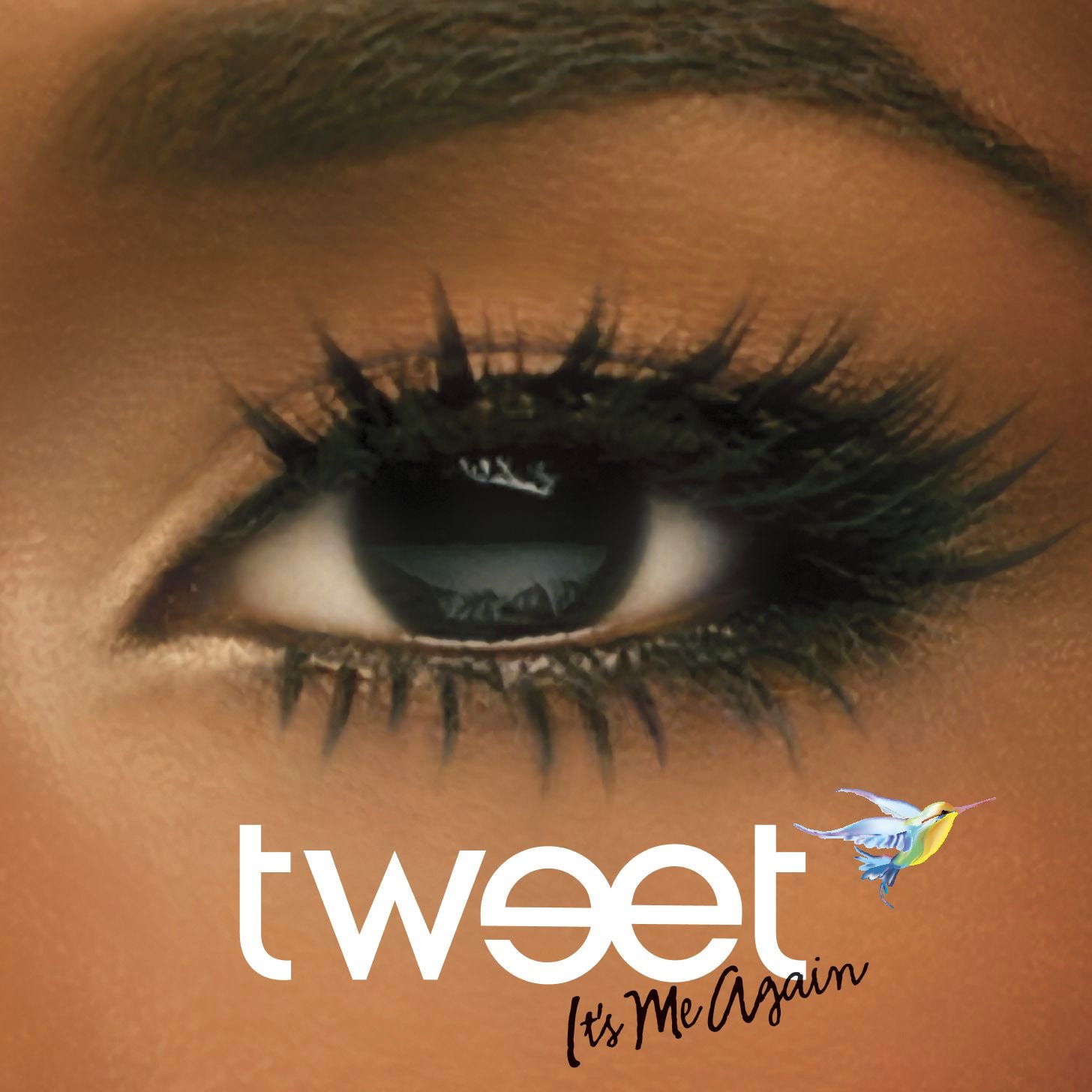
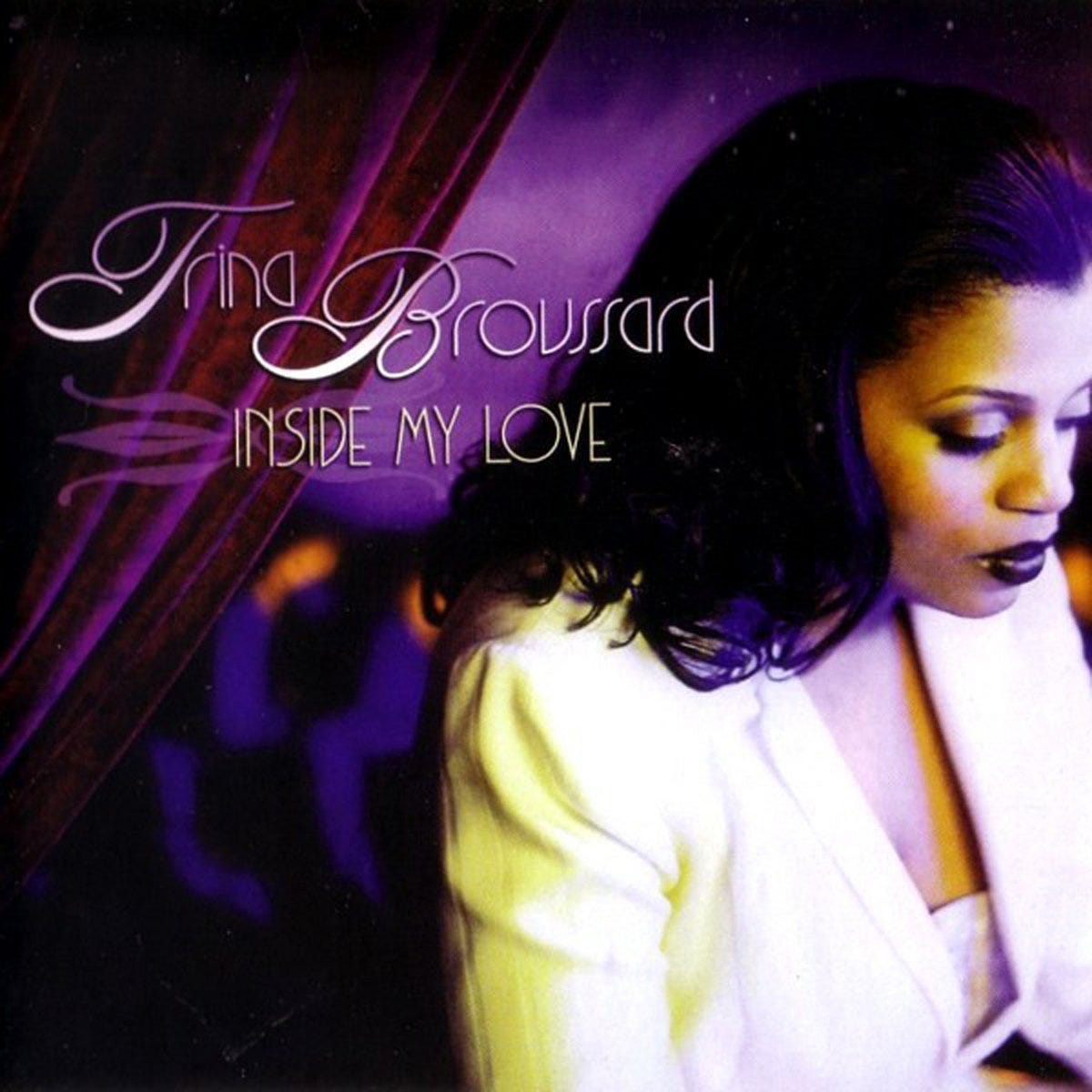
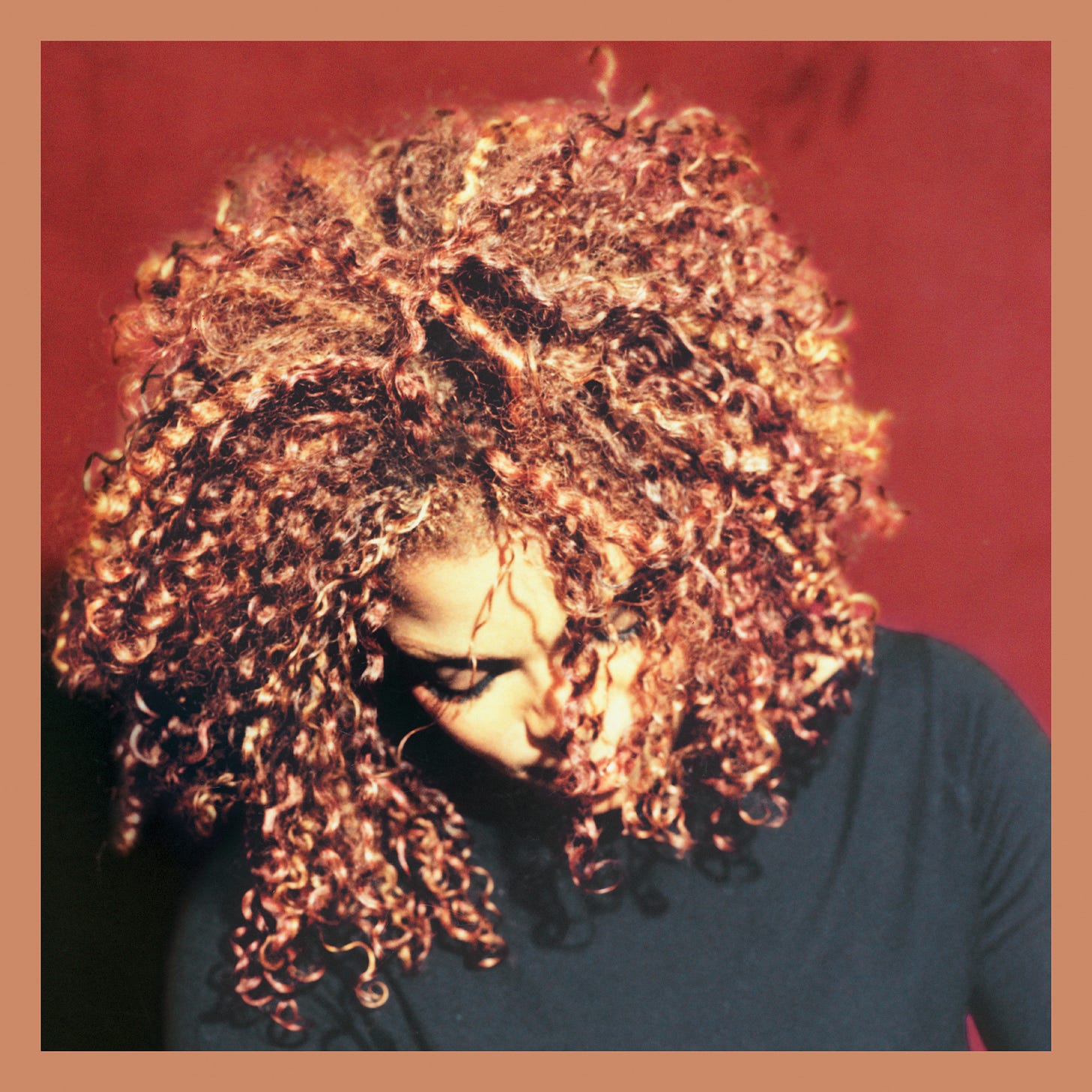
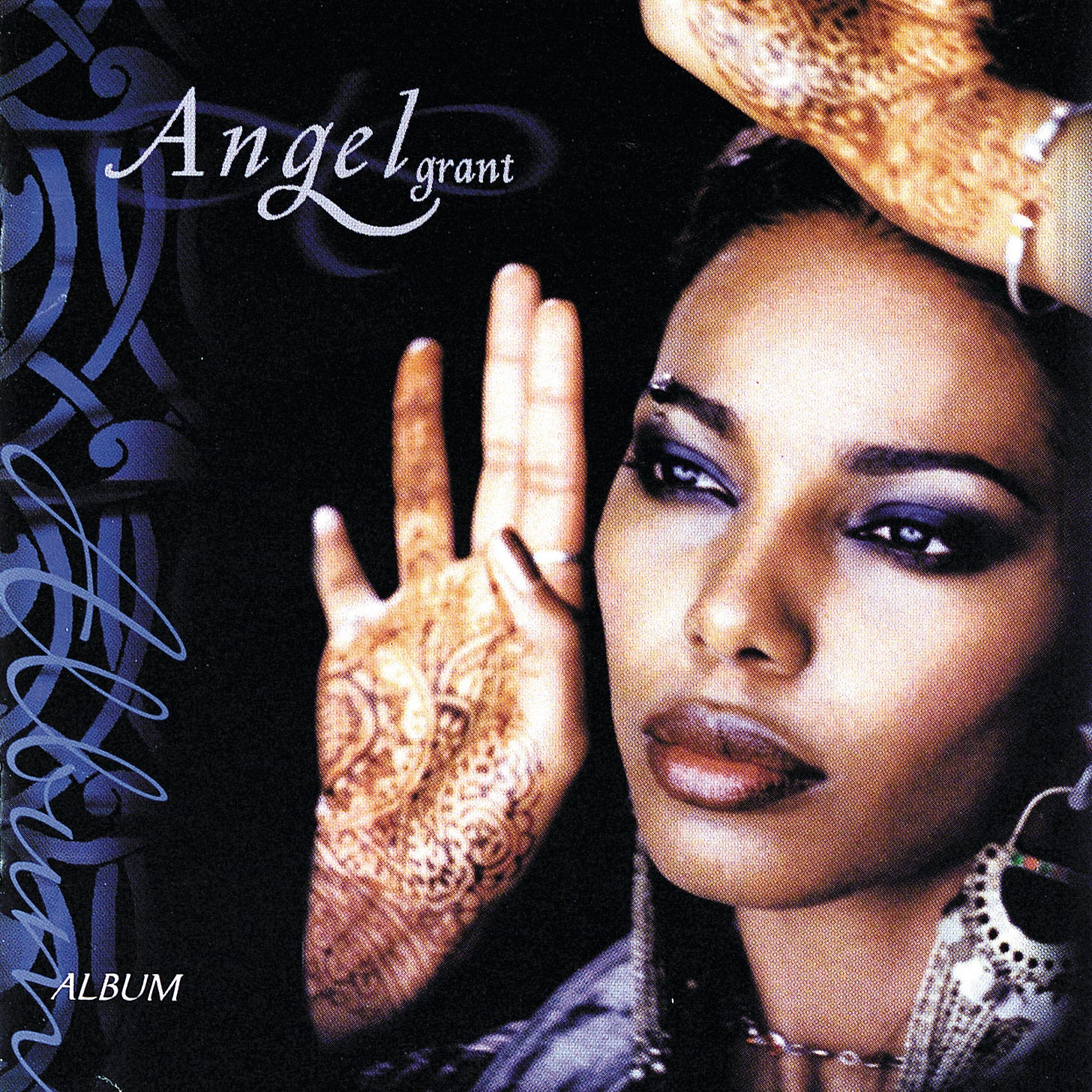
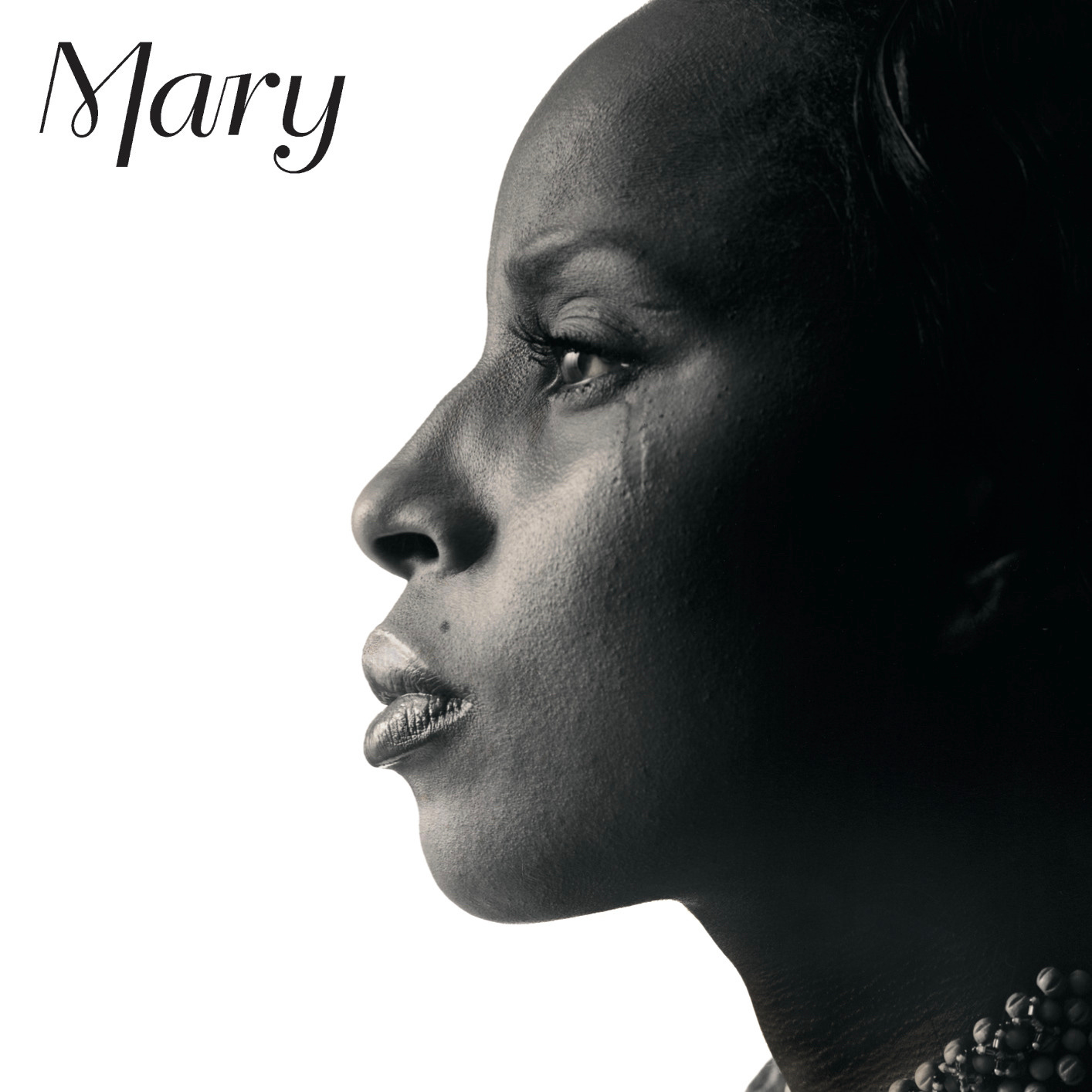
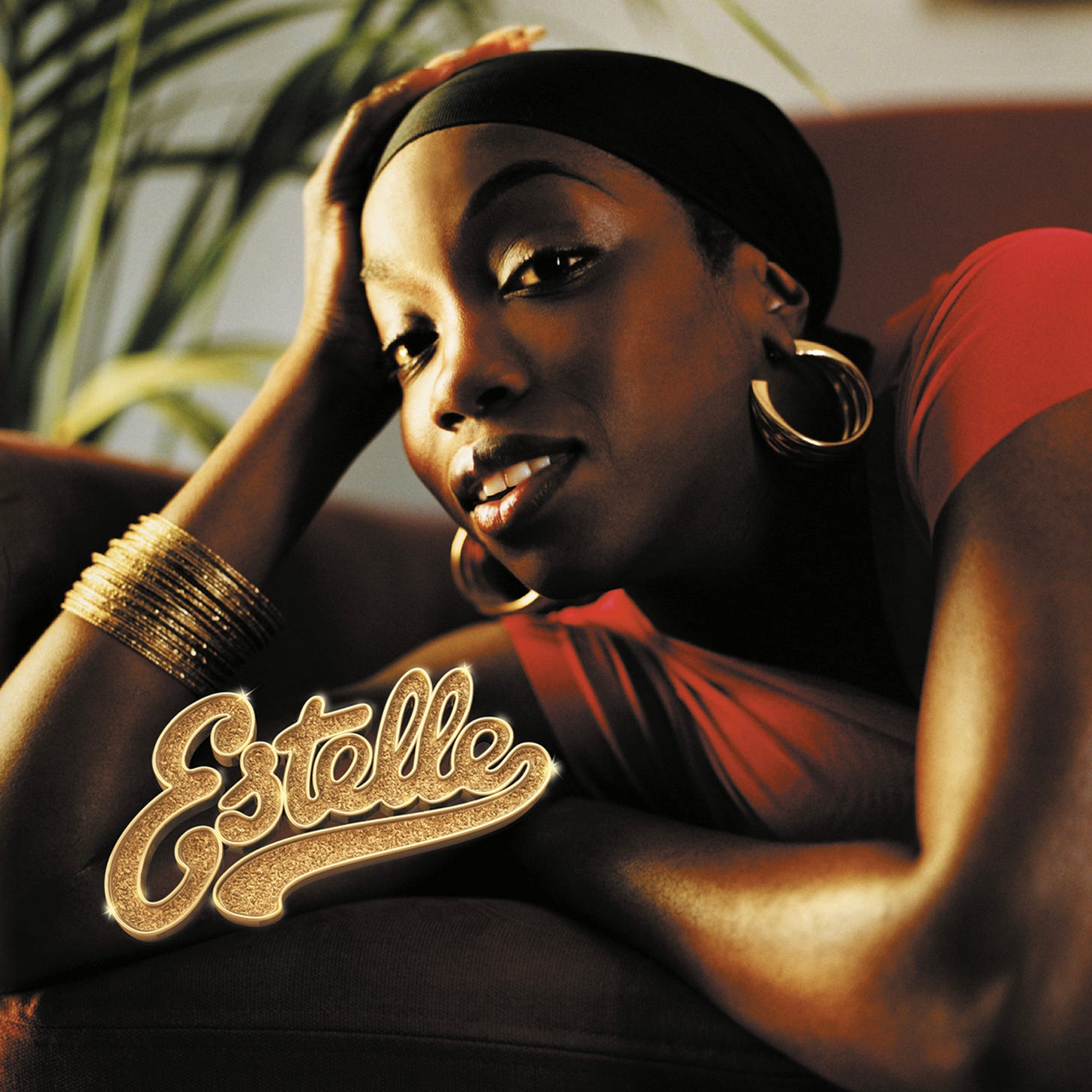
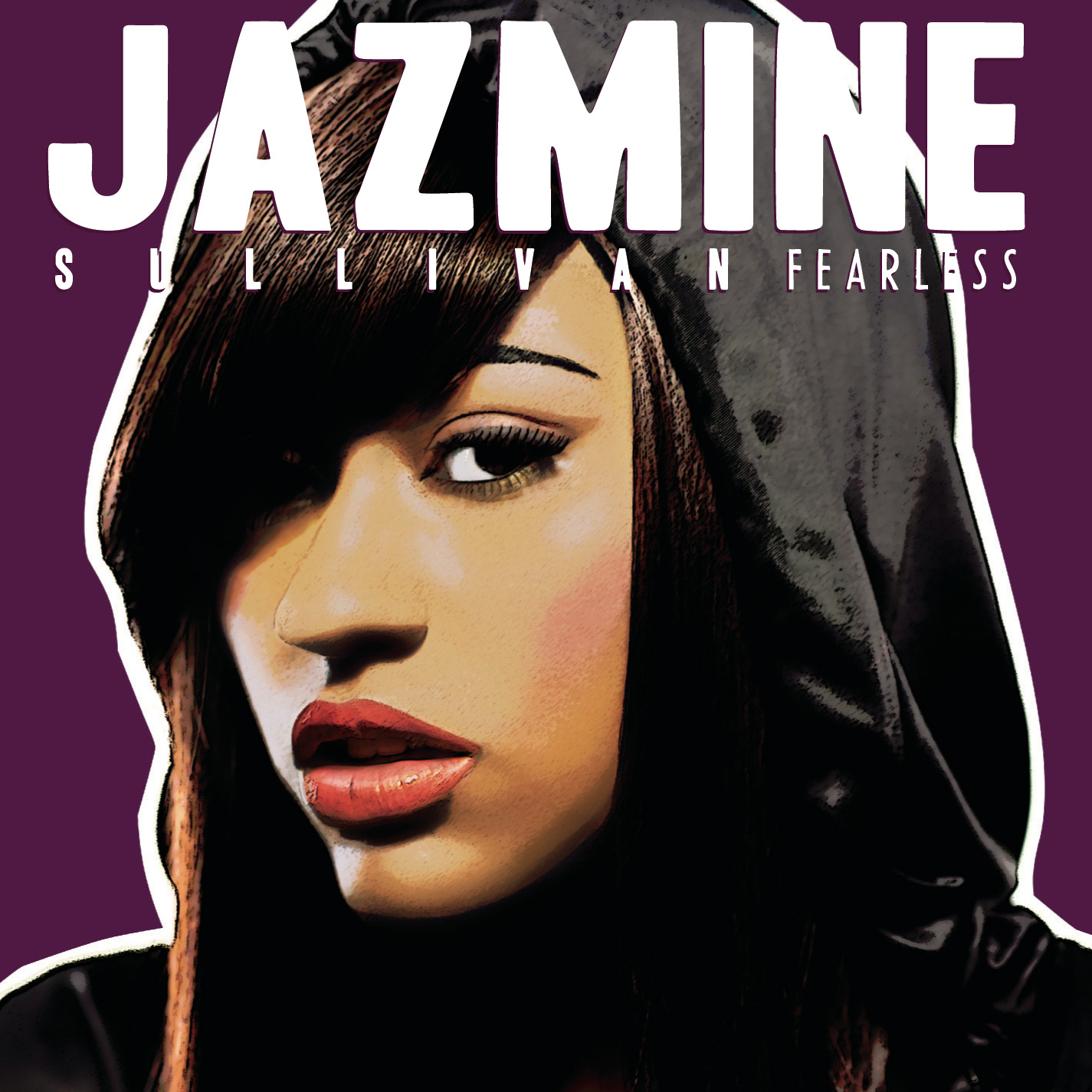
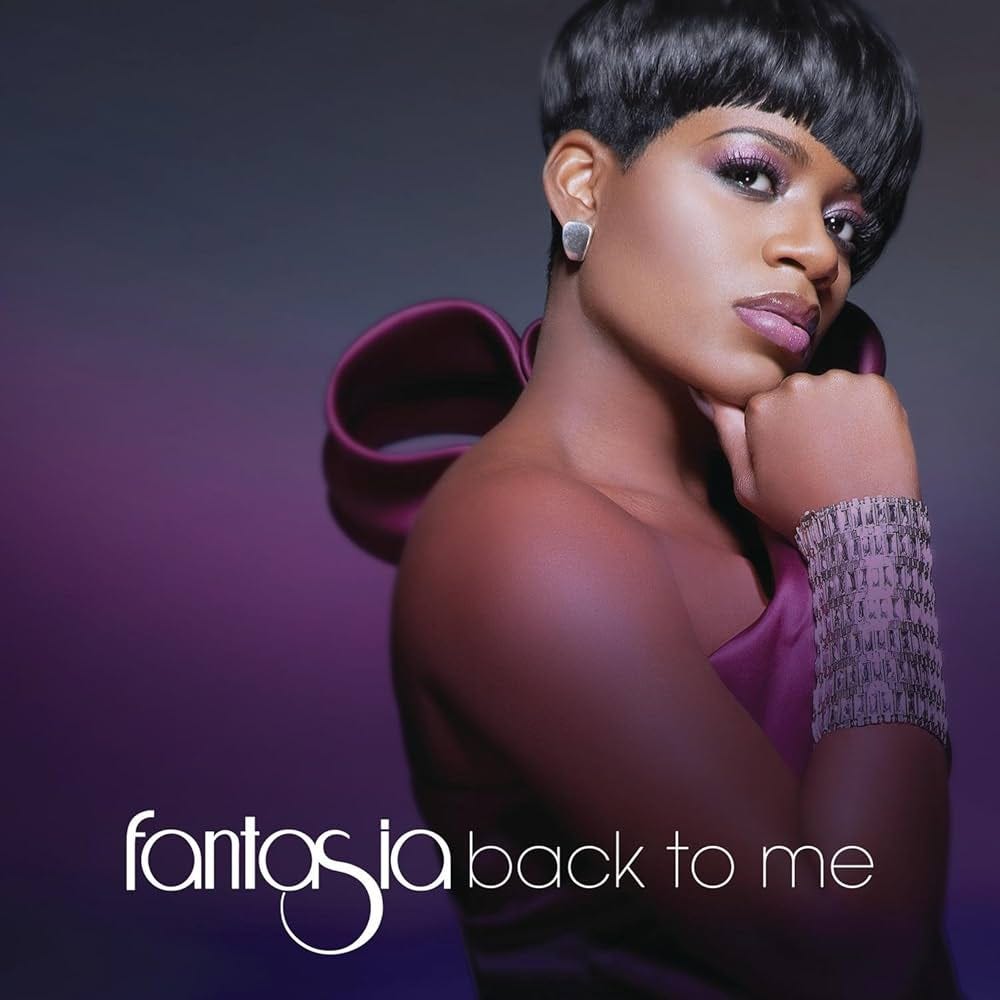
Omg